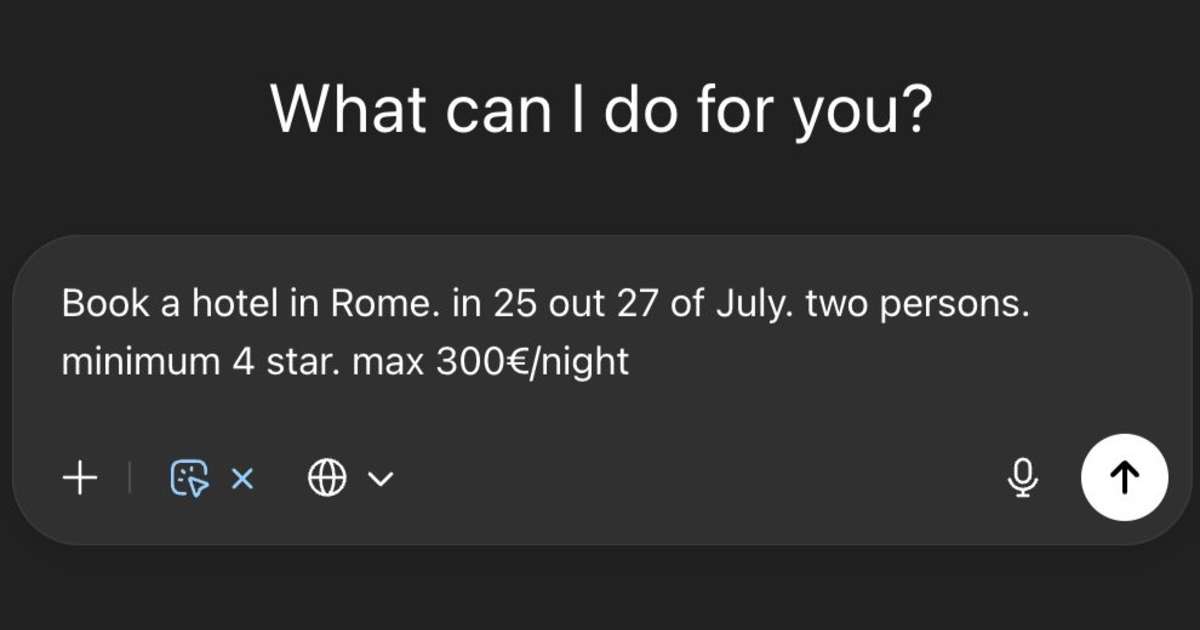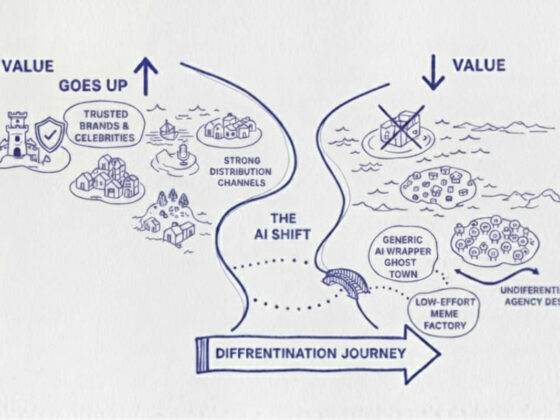
Earlier this morning, a hotel reservation was made under my name. But to be accurate, I didn’t make it. It was executed on my behalf by the recently launched ChatGPT agent, an autonomous AI system capable of parsing ambiguous input, retaining contextual preferences, scanning through massive datasets in real time, and translating a loosely expressed intent (in this case: “find me a place to stay in Rome”) into a concrete, optimized, executable outcome.
The process was fluid. Step by step, the agent moved forward, resolving ambiguity, narrowing options, and presenting increasingly precise solutions. And then, at a very specific (and telling) moment, when personal data had to be entered, it paused, stating: For privacy reasons, please enter your information yourself. Let me know when you’re done.
That short line, easily overlooked by the average user, reveals the entire architecture of what’s happening beneath the surface. It is the moment of intentional withdrawal, the designed handover, the point where human agency is no longer central but conditional: human-on-the-loop, where humans are not in control, but somehow tolerated within the loop.
Human-on-the-loop, where humans are not in control, but somehow tolerated within the loop.
In my latest book, We Are the Glitch, I argued that AI is no longer confined to backend functionality. It is the new user interface: not a replacement of old screens, but a dissolution of the very concept of interface itself. UX, as a discipline, is (let’s face it) dying. What we’re witnessing is not an evolution of usability but its negation: a shift from interface to intent, from action to delegation, from click to context.
UX, as a discipline, is dying.
We are already beyond the visual. The interface has become invisible.
But here’s the part worth pausing on. The agent, despite its intelligence and apparent freedom, went (at least during my tests) straight to Booking.com. Not a charming independent hotel website, not a “hidden gem” in the digital countryside, but the most structured, most API-rich, most semantically optimized platform available.
And, let’s get this straight: this is not a glitch. It’s the whole point.
The idea that AI will magically flatten the playing field, empowering small operators, redistributing visibility on brand.com, and subverting existing hierarchies is not just naïve, it’s structurally flawed. AI agents don’t roam the web like humans. They don’t care about your brand story, your beautiful website, or your emotional copywriting. They care about structure. They seek speed, clarity, and machine-readability. And they do so through infrastructures explicitly built for them: platforms that speak in JSON, not in aesthetic intent.
AI agents don’t roam the web like humans. They don’t care about your brand story, your beautiful website, or your emotional copywriting. They care about structure.
And right now, only a few players have built environments optimized for agentic interaction. Unsurprisingly, those players are the OTAs.
The myth of disintermediation, that AI will bypass intermediaries and restore visibility to the fragmented periphery of hospitality, is precisely that: a myth. The truth is more brutal. In the time of agentic search, OTAs are not being bypassed. They are becoming the substrate. While the industry continues to discuss parity and personalization, the real conversation has already shifted from user experience to systemic compatibility.
In the time of agentic search, OTAs are not being bypassed. They are becoming the substrate.
As for me, I f*cking hate booking hotels online. Always have. It’s slow, repetitive, cognitively expensive, and aesthetically dead. But, there’s another but, this shift isn’t just about killing friction. Something deeper is being stripped away. And no, it’s not just frustration or inefficiency. It’s the illusion of control. The comfortable fiction that we, the users, are still the protagonists of the digital stage.
Guess what? We’re not.
The interface is gone. The agent has taken over. Quietly, efficiently, and -possibly- irreversibly.
And if you’re not ready for that, you’re already out of the loop.







